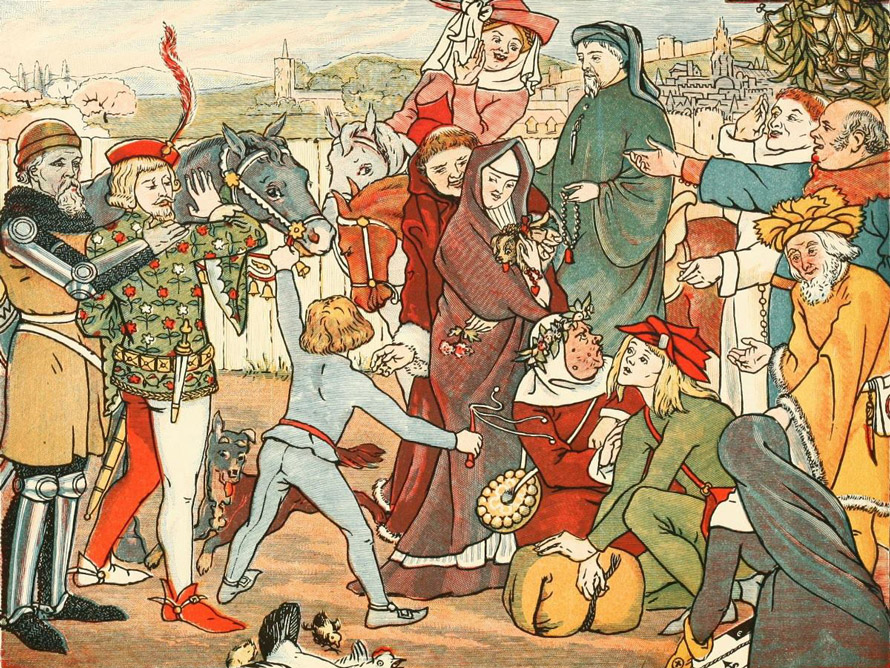A mediaeval pilgrimage provides the stage for a range of stories: there are the romances of the nobility, the bawdyHumorously indecent; jokes that deal with rude or risqué topics. jokes and humorous characters and the some animal fables thrown in on the side. This work, by the father of English literature Geoffrey Chaucer, is a portrait of English society in the wake of the Black DeathA bacterial infection that killed as much as 60% of the population of Europe and 33% of the Middle Eastern population. and the Peasants' RevoltA major 1381 uprising across large areas of England, caused by economic discontent and the introduction of the poll tax.. The Canterbury Tales has also been credited with popularising the English vernacularA native language of a particular group of people, often unwritten or unstandardised. as a literary language over the more traditional French, Italian and Latin.
The Canterbury Tales

Glossary
Bawdy - Humorously indecent; jokes that deal with rude or risqué topics.
Black Death - A bacterial infection that killed as much as 60% of the population of Europe and 33% of the Middle Eastern population.
Peasants' Revolt - A major 1381 uprising across large areas of England, caused by economic discontent and the introduction of the poll tax.
Vernacular - A native language of a particular group of people, often unwritten or unstandardised.
Clergy - Religious officials who lead activities for worshippers, especially in the Christian church.
Magnum opus - The most important, or best work, an artist, composer or writer has ever produced.
Piousness - Devoutly religious.
Erudition - Having great knowledge or learning.
Heterogeneous - Made up of different or diverse parts.
Wiles - Clever or devious tricks used to persuade people to do something.
Sovereignty - The authority of a state to govern itself, or sometimes another state.
Autonomy - The right to make your own decisions.
Platonic - Love or emotion that is not romantic or sexual.
Camaraderie - Friendship and trust among people who spend a lot of time together.
